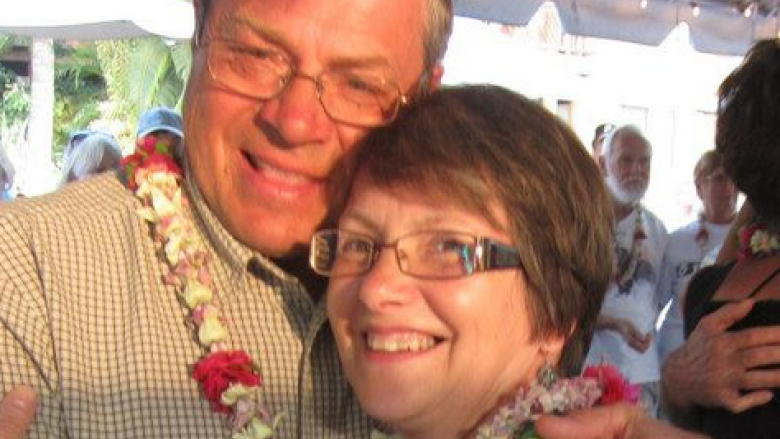A killer's mother knows the pain facing Steven O'Shaughnessy's family
Shirley Wourms knows the torment and pain of grieving for a son who killed his family and himself.
Every time she hears about a murder-suicide on the news, Wourms has a physical and emotional reaction. This week, the quadruple homicide of Latasha Gosling and her three children in Tisdale, Sask., and the apparent suicide of the man responsible, Steven O'Shaughnessy, had the same effect.
"I just bawled," Wourms told CBC News.
Her son, Darren, 26, killed his wife, Hayley, 23, and son Cayden, 2, near his hometown of St. Walburg in May 2012.
A police investigation found all three died from shots fired by a rifle found at the scene. It happened on a Sunday afternoon after the family visited home for a bridal shower.
Nearly three years later, Wourms says a day doesn't pass that she doesn't feel flashes of pain, as well as the anguish of unanswered questions and missed warning signs.
Wourms believes the families involved in the Tisdale murder-suicide will be plagued by similar feelings.
O'Shaughnessy's family released a statement Friday saying "we will likely never know why this senseless act occurred." It noted that he had no history of violence but had continuing struggles with mental-health issues.
"I know exactly how they feel, and I would let them know I'm praying for them," Wourms told CBC News. Her son, she learned before the tragedy, was also struggling but it was not clear how serious things were.
Dangerous secrets
Darren Wourm's mental-health issues began just a few months before the murder-suicide, and were mostly hidden from extended family.
In a visit home in March, Wourms said, Darren confided he was having problems.
"He said, 'I can't think. My head is spinning. I can't turn it off,'" Wourms recalled.
After his death, the family pieced together how his problems had escalated.
The junior engineer was working long shifts in the Fort McMurray, far away from his wife and son. He was unable to sleep and becoming increasingly stressed and paranoid. On April 24, 2012 RCMP received a 911 call from someone concerned about the family's well-being in their new home Airdrie, Alta.
Darren was taken to hospital for a psychiatric evaluation, prescribed anti-depressants and released. The information wasn't shared with his parents, Wourms said.
"The biggest thing is, they hid it all — both Darren and Hayley — and it didn't give us the opportunity to help them," she said.
On that fateful weekend, Wourms recalled, the couple was acting strange: Hayley seemed scared and Darren seemed distant.
But Wourms, like others, didn't want to pry, noting that some of the couple's friends knew about the troubles Darren was facing but didn't want to expose them.
Wourms has advice for anyone who is worried about a friend or family member: "You go tell somebody, because they're not. They're trying to hide it. There are some things you can keep a secret, and some things you can't."
Picking up the pieces
"I know when this happened with Darren, I wanted to die. I didn't want to be here," Wourms said.
She credits her husband and eight other children for pulling her out of paralyzing sadness. She's also grateful for community support in the town of St. Walburg.
She said she still hasn't made peace with what happened, but has managed to force herself to move forward.
"You can't linger on the past because you have other family that you need to take care of and be with," she said.
Wourms, a deeply religious woman, said she continues to be haunted by one question — a question for God.
"The comfort that I don't have is, where's my Darren? Is he in hell? Is he in purgatory? Is he in heaven? God, what did you do with him?"



